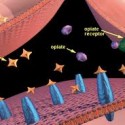Proposition 5: Policy limits drug abuse
By JIM EGAR
In early 2000, I watched as a 45-year-old African-American defendant was led out of court in handcuffs after having been sentenced to prison for possessing a tenth of a gram of cocaine. His wife, mother, employer and attorney asked the judge to send him for mandatory residential drug treatment with drug tests, court appearances, sanctions, incentives, and supervision. Instead, he was taken away, request denied. He was warehoused in one of California’s bulging prisons at a cost of $46,000 a year.This is a scene that I have witnessed all too often in my 30 years as a public defender and defense attorney.
This began to change when drug courts were introduced and later when Proposition 36 was overwhelmingly passed by voters in 2000, mandating drug treatment instead of incarceration for non-violent drug offenders.
On Nov. 4, Proposition 5 offers voters a chance to formalize and expand the limited treatment available into a well-thought-out process designed for accountability, verification, substance abuse treatment, mental health services and prison reform.
California’s criminal justice and prison systems are broken. More than 170,000 men are housed in California prisons built to hold 100,000. They receive virtually no drug treatment or mental health services. Ninety percent of inmates are released without drug treatment. California returns twice the national average (70 percent) to prison within three years.
I have been intimately involved in the development
of drug courts in California and nationally for more than 14 years. Results document that treatment works!Our communities are safer, recidivism rates are reduced, babies are born free of drugs, families are reunited, marriages are saved, taxes are paid and addicts recover.
Public safety is protected because violent and serious nondrug offenders are excluded unless ordered by a judge. People with prior-strike offenses are excluded unless the district attorney requests their admission.
Proposition 5 cuts government spending by $2.5 billion, according to the nonpartisan Legislative Analyst’s Office. California has had success with this approach under Proposition 36. In seven years, Proposition 36 has graduated 84,000 people, saved taxpayers $2 billion and, according to independent UCLA researchers, resulted in no increase in crime.
Drug testing, sanctions and incentives including incarceration are part of Proposition 5 mandates.
Don’t be misled by the false claims that strict drug testing, sanctions and jail time are not part of Proposition 5. Proposition 5 will direct $65 million for youth drug and mental health services to intervene early, saving lives and stopping crime before it happens.
Existing treatment courts are enhanced under Proposition 5. Mental health care, treatment for substance abuse, psychological counseling, job training and education are matched with frequent drug testing, sanctions for relapse, court sessions and accountability.
Prison labor unions opposed to Proposition 5 seek to impair legal and therapeutic court systems by spending millions instead to increase high-paying jobs and promote job security. It is poor social policy to allow employee groups to determine how California will address its drug abuse, prison overcrowding and crime-related problems.
Proposition 5 is effective in reducing the impact of drug abuse. It is smart and efficient justice policy that deals with the core problems and saves taxpayers in the process.
Jim Egar is Monterey County’s public defender.
__________
source: http://www.montereyherald.com

